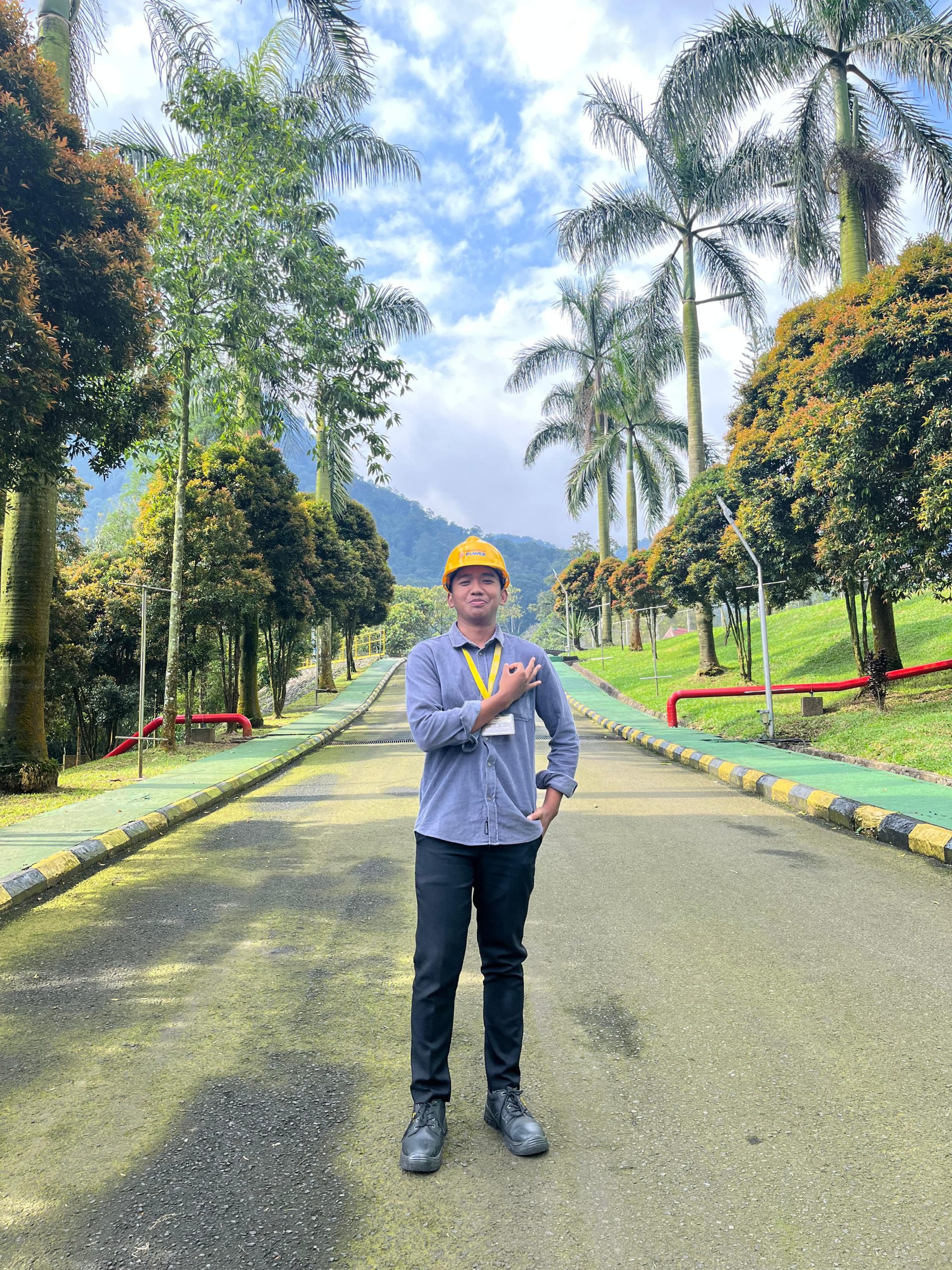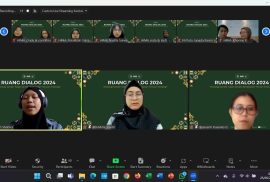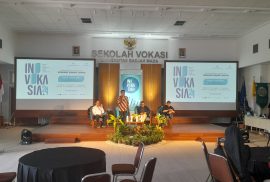 Who says Arabic Literature students only deal with texts and Middle Eastern culture? Faris Zaky, an active student from the Arabic Literature program at Universitas Gadjah Mada (UGM), proves otherwise. He has successfully demonstrated that a background in the humanities is not a barrier to making a real contribution in the professional world.
Who says Arabic Literature students only deal with texts and Middle Eastern culture? Faris Zaky, an active student from the Arabic Literature program at Universitas Gadjah Mada (UGM), proves otherwise. He has successfully demonstrated that a background in the humanities is not a barrier to making a real contribution in the professional world.
Starting with a desire to fill his semester break with productive activities, Faris discovered an internship opportunity. Upon reading that one of the positions available was in the field of Corporate Social Responsibility (CSR), he immediately felt intrigued, even though he initially hesitated, thinking his major was not directly related. With the courage to try, he decided to seize the opportunity. This decision turned out to be fruitful. He was accepted and began an internship experience that introduced him to various community dynamics.
Faris’s interest in social issues is not new. Since the beginning of his studies, he has been active in various community activities such as Ikmasa Mengabdi, Gemilang Desa, Ramadhan di Kampus, and being part of the organizing team for PIONIR Gadjah Mada 2024. From these experiences, his sensitivity to social issues and planning skills have grown, which are now essential assets in his role in CSR.
Despite coming from an Arabic Literature background, Faris found that many skills he acquired during his studies are highly useful in the workplace. The writing and communication skills he honed during his studies became his main assets in conveying information to the community in a clear and understandable manner. Additionally, his experience in managing organizational programs equipped him with the ability to accept criticism, respond to problems with solutions, and prepare public communication materials with appealing visuals—such as graphic design and video editing—all of which support CSR work in the field.
During his internship, Faris was involved in various community development programs covering agriculture, livestock, health, tourism, and the economy. One of the programs he is most proud of is the development of the Bina Mandiri Farmer Group in Pulosari Village through the innovation of biodigester technology that produces bio slurry. This product was then developed into Bio Slurry Plus, an original innovation from PLTP Gunung Salak that has not been implemented elsewhere. This program has proven to increase productivity in the agricultural and livestock sectors and is one of the reasons why the CSR program of PLTP Gunung Salak received the Gold award—the highest level in the national CSR program assessment.
In carrying out his role, Faris also faced challenges, especially in changing the habits of the community that were not entirely appropriate, particularly in agriculture and livestock. He and his team chose to educate gradually, consistently, and with a persuasive approach so that the messages of change could be accepted without offending deeply rooted habits. Throughout this process, Faris upheld local values and culture. He believes that the principle of “where the earth is stepped, there the sky is upheld” is key to building community trust, especially when working in an environment rich in cultural values, such as the area around the Halimun Gunung Salak National Park, even though the program’s target area is outside the conservation zone.
This internship experience has transformed Faris’s perspective on the relationship between literature, social issues, and the professional world. He realized that the knowledge he studied, which he initially thought was only relevant in academic or cultural studies, actually has a close connection to practical needs in the field. Literature is not just about texts; it is also about understanding social contexts, building empathy, and effectively conveying ideas—elements that are crucial in community development. For him, the worlds of literature and work do not oppose each other; rather, they support and strengthen one another.
After completing his internship program, Faris is determined to continue engaging in social activities and deepen his knowledge in community development. He also wants to explore the skills he has honed, such as event planning, design, video editing, and writing, which he believes are highly needed in the social work sector. Faris Zaky’s story is a testament that the courage to step forward, consistent interest, and adaptability can lead students from any discipline to make a real impact on society—even within state-owned enterprises.





